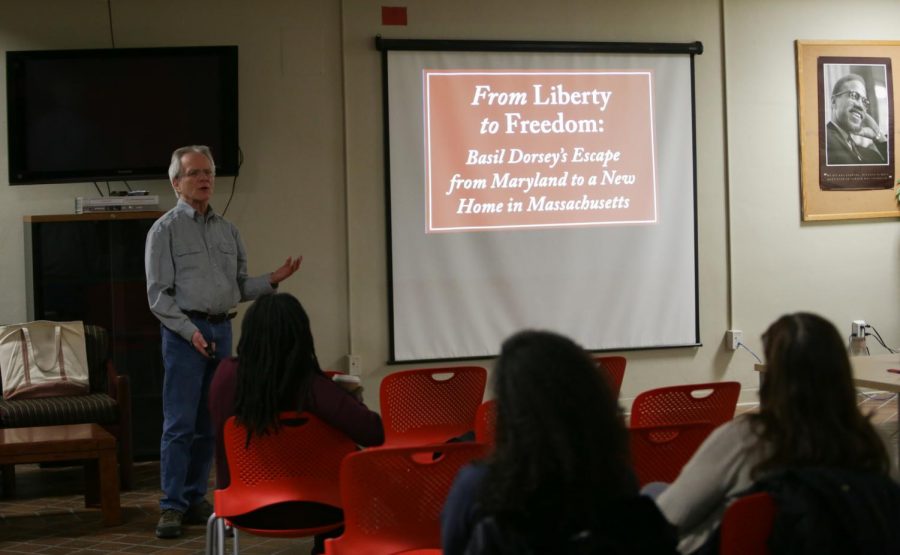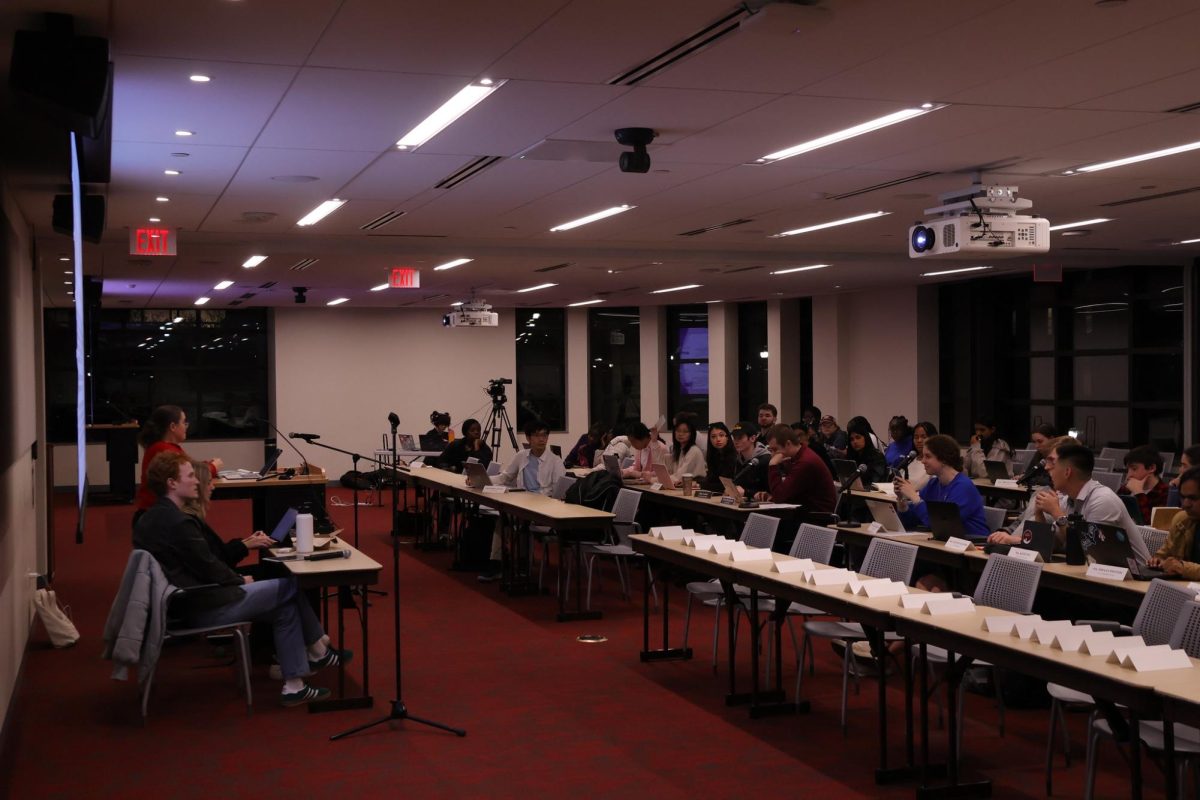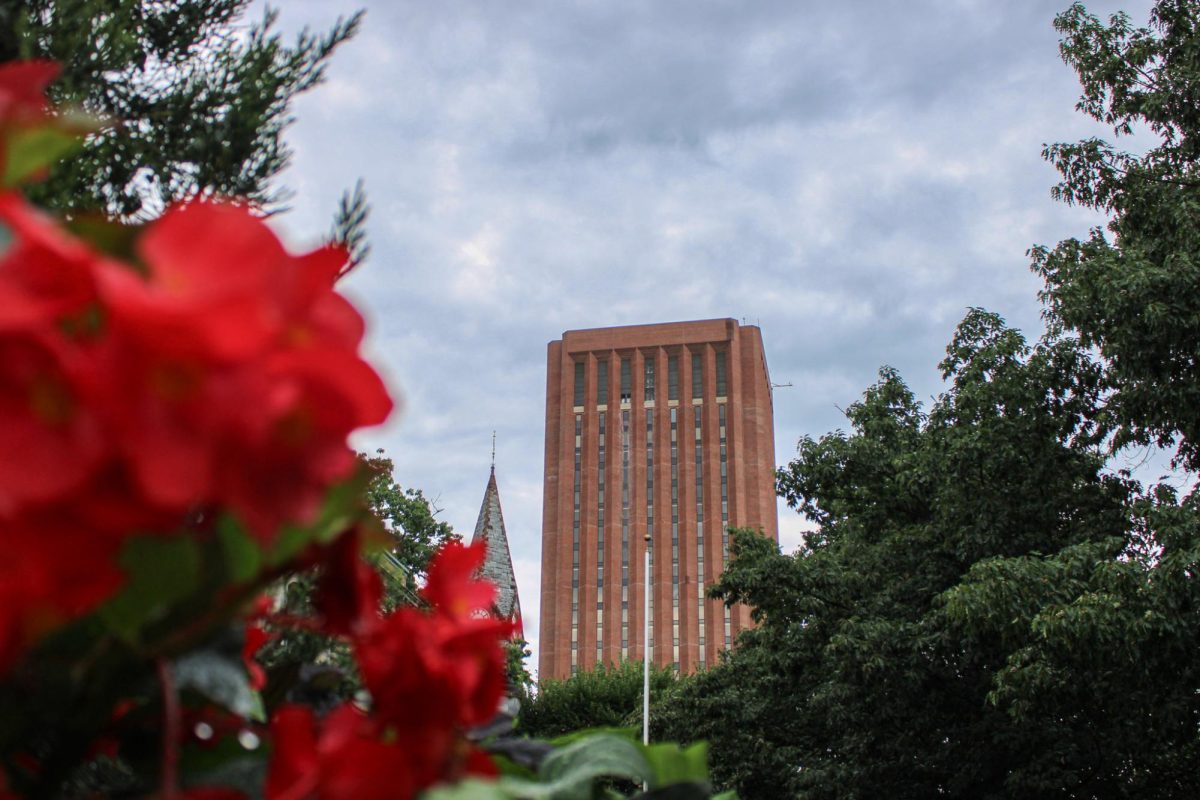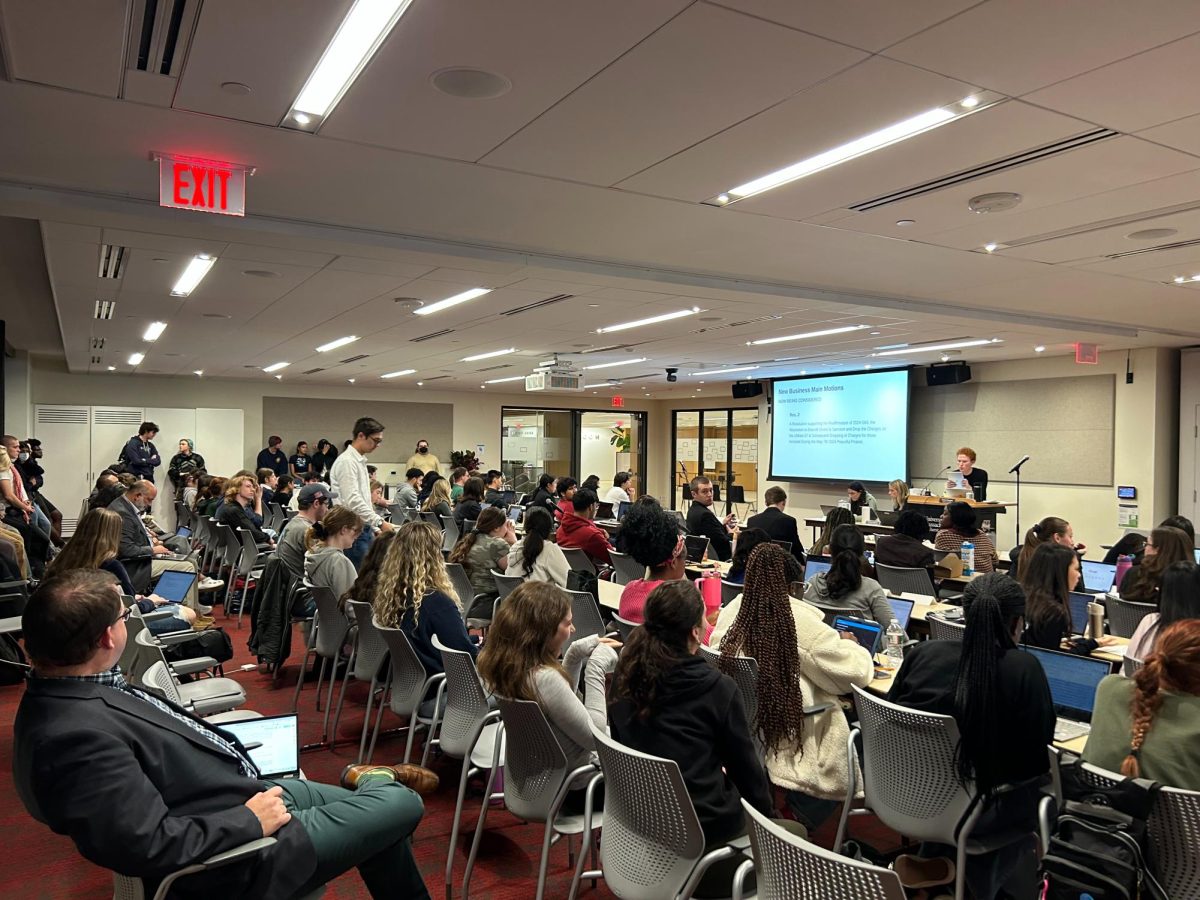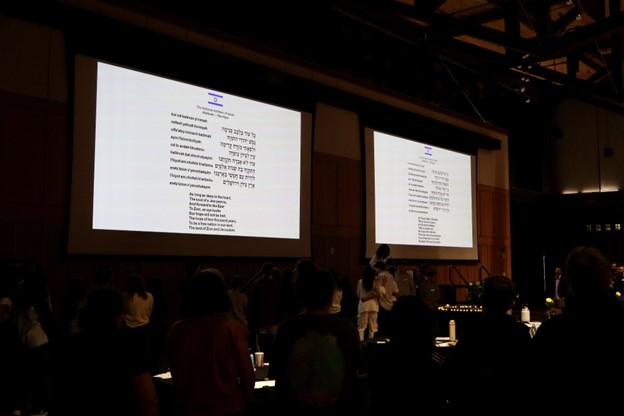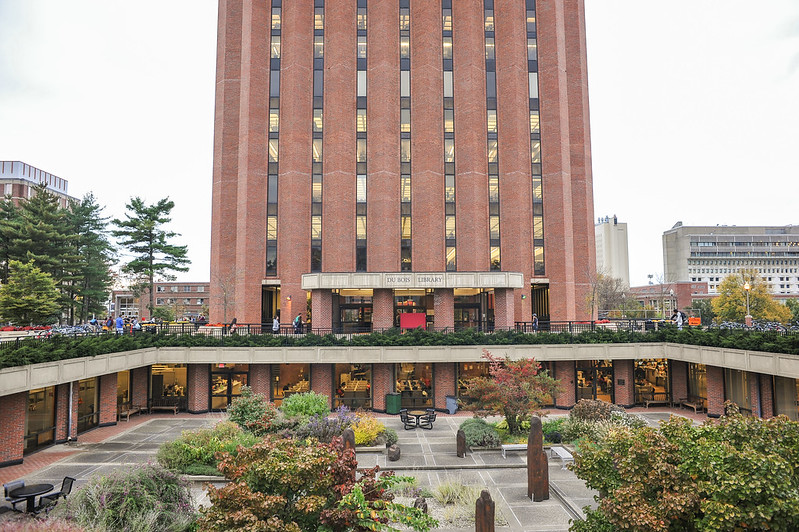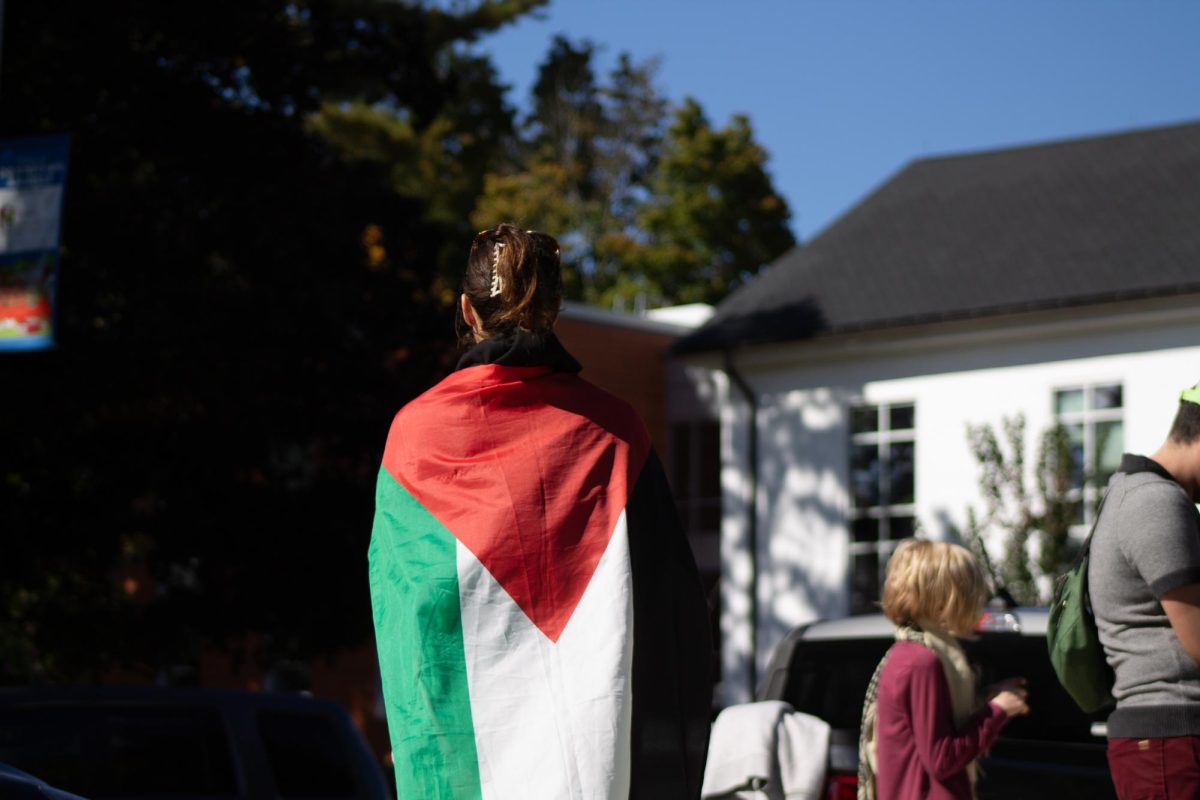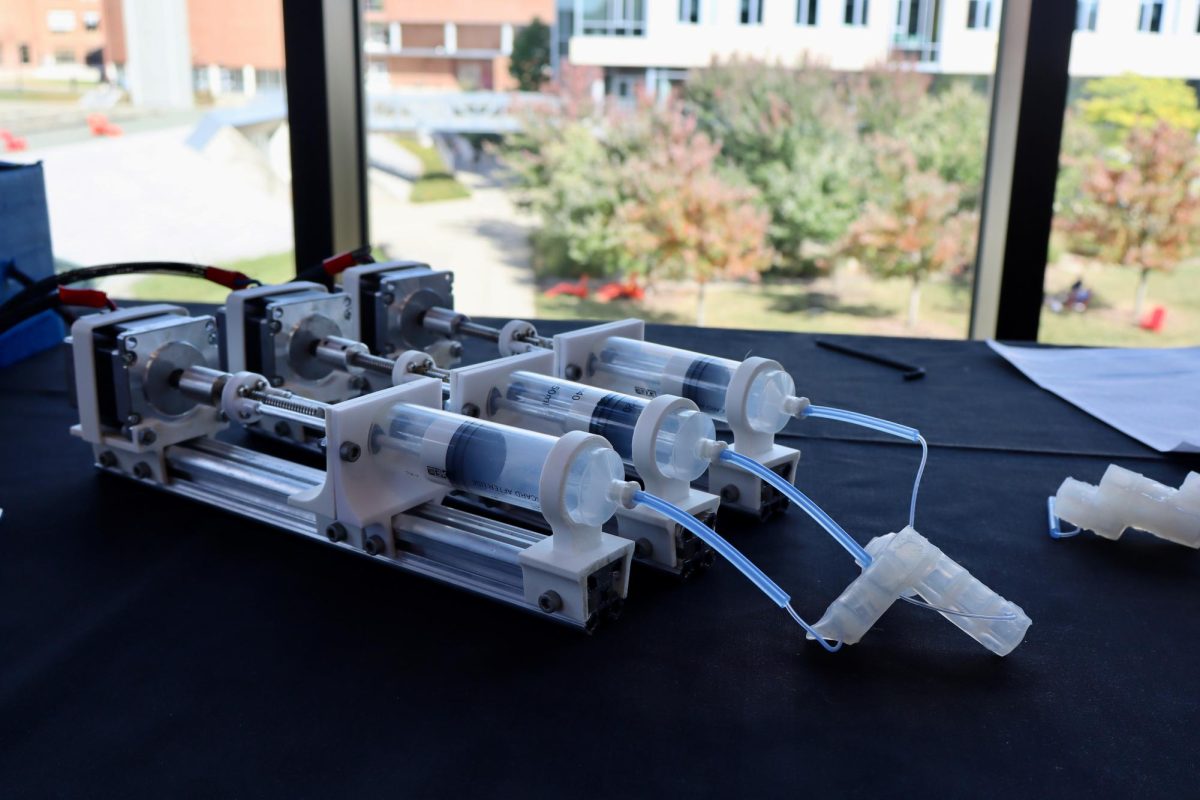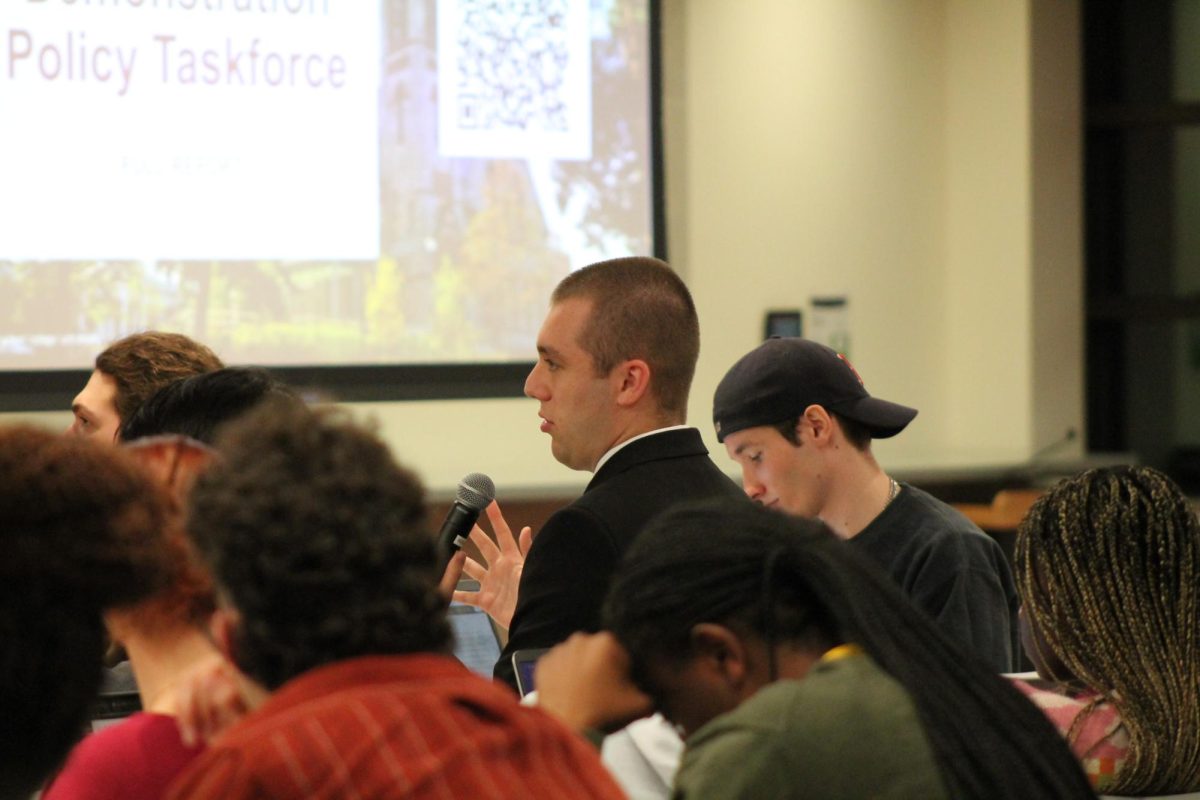On Wednesday night, local historian and director of the David Ruggles Center in Northampton, Dr. Steve Trimer, delivered a lecture on the largely unknown history of the village of Florence, Massachusetts and the community’s ties to the Underground Railroad and the abolitionist movement.
“Not many people know about this history,” said Deroy Gordon, a graduate student in African American studies.
Strimer’s lecture mainly regarded the community of freed slaves that lived and worked in Florence during the mid-19th century and formed the community known as the Northampton Association of Education and Industry.
According to Strimer, Florence was essentially founded by the organization, as the village consisted of only a few houses before the group was formed. Among the members of group, which Strimer described as a “radical abolitionist” movement, was famed abolitionist Sojourner Truth.
According to Strimer, the Northampton Association of Education and Industry’s support for emancipation without reparations to slave owners and their support for women’s rights differentiated them from most other abolitionist movements of the 1800s.
Strimer also said that many of the members of the Northampton Association of Education and Industry worked and owned land in Florence, and “demanded to pay taxes so that they could vote.” Many of the homes of African Americans including Truth and David Ruggles, the first Black book seller in the country and namesake of the David Ruggles Center, are still standing in Florence.
“At a time when African Americans couldn’t own anything, here they were in Florence owning houses and land,” said Gordon.
The support and the community surrounding freed slaves and African Americans was so strong in Florence, that, according to Strimer, a couple of months after the Fugitive Slave Act permitted the capture and enslavement of former slaves in 1850, the community gathered at the newly built Northampton town hall and passed a number of resolutions protecting freed slaves.
Apart from being one of the only places in the country where African Americans could own land and participate in politics, Florence was also a stop on the Underground Railroad, where individual members of the Northampton Association of Education and Industry would harbor escaped slaves moving north, said Strimer.
Strimer said that the involvement of African Americans in the Underground Railroad is important as it challenges how people traditionally think of the Underground Railroad as a “benevolent white men helping the panting slave,” and shows the active involvement many African Americans had in helping to get escaped slaves to freedom.
According to Strimer, other than the life and history of Truth, the history of freed slaves and the abolitionist movement in Florence is widely unknown.
“We have people on the historical committee who have never heard of this history,” said Strimer.
African American studies professor Stephanie Shonekan said she was aware of some history regarding Florence and the Underground Railroad, but not of the extent or details of the history. She said that people are so concerned with current history and happenings that they forget to look to the past for inspiration and guidance.
“In 2019, everyone is so inundated with current troubling issues, everyone is so focused on contemporary history,” she said, adding, “it’s important for us as scholars to look back at the past and embrace moments of triumph.”
Gordon also believed in the relevance of Florence’s history.
“It’s a rich history and we should know what went on there,” he said.
For Shonekan, the lack of knowledge that many have about the area makes it no less inspiring.
“To know that Sojourner Truth lived right down the road is an inspiration,” said Shonekan. “It is part of the fabric of the region, and it urges us not to give up.”
Mack Cooper can be reached at [email protected].

